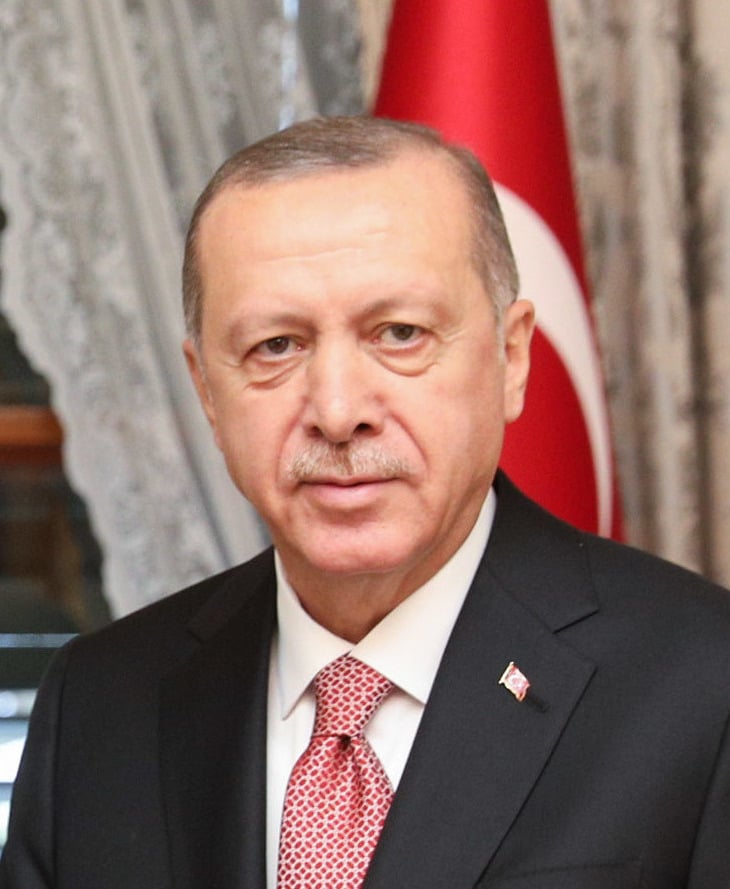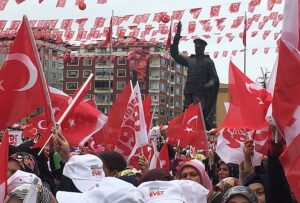Turkish president Recep Tayipp Erdoğan (Source: Wikimedia Commons)
In the local elections on March 30th, the CHP delivered a momentous defeat to Erdoğan’s AK party. It was the first time in Erdoğan’s more than 20-year long reign that his party would not get the most votes across the country. The biggest cities in Türkiye were either retained or won by the CHP, most with a wide margin. Although this is a historic moment in Turkish politics, the opposition needs to stay vigilant, with Erdoğan likely to be in office until 2028. Finding solutions to the country’s most pressing problems will likely prove crucial to ending the era of Erdoğan in Turkish politics.
The results
Nationally, the CHP garnered 37.77% of the votes, nearly 8 percentage points more than in 2019. The AKP got 35.49% of the votes, a decrease of more than 7 percentage points. The New Party (YP), a conservative Islamist party led by Fatih Erbakan, came in a surprising third with a little over 6% of the votes. The Central Anatolian heartlands remains a base of support for AKP, although they lost several provinces there. CHP has broad support in western Turkey, while the Kurdish DEM party secured 10 provinces in the south-east of the country. Although their predecessor party HDP had won these provinces, they were administered by AKP trustees after accusations of connections with Kurdish rebels. Controversy remains as the Turkish electoral body has banned DEM’s candidate from becoming mayor after emerging victorious in the city of Van. Instead, the incumbent AKP mayor was reinstated.
Key races took place in many of the largest cities of Türkiye. Especially the race in Istanbul was considered very close beforehand. Surprisingly, incumbent mayor Imamoĝlu held the city for CHP with a substantial margin of more than 11% of votes, securing support in traditionally conservative neighbourhoods. Ankara mayor Mansur Yavaş scored a landslide victory, triumphing over AKP candidate Altınok with a more than 28% vote difference. Other large cities such as Izmir and Antalya were also comfortably held by CHP candidates. Bursa, where AKP won a close victory in 2019, was lost with a nearly 10% margin to CHP. The party now controls a record 14 out of 30 metropolitan municipalities, including the five biggest, with the AKP controlling 12. Not a single CHP-held city was taken by the AKP.
Whereas Erdoğan was able to control the effects of his unsuccessful economic policies and perceived AKP corruption in the 2023 general elections, the electorate has now clearly shown its discontent with the ruling party. It also seems that the CHP was more effective in fielding candidates that resonated with local populations whereas many of the centrally selected AKP candidates failed to do so.
Implications
The outcome of the elections represent a major defeat for Erdoğan and his AK party. It puts serious doubt on the AKP’s ability to secure enough support for the 2028 presidential elections, especially with the prospect of Erdoğan not standing for election. It was feared that a victory in the large cities would reinforce Erdoğan’s resolve to further amend the constitution, possibly paving the way for a fourth presidential term. The convincing results of the local elections puts a serious doubt on whether Erdoğan feels secure enough to pursue such endeavours. Snap elections, however, could still make it possible for Erdoğan to run for a fourth term. Istanbul mayor Imamoĝlu is broadly considered to be on course to run for the presidency in 2028, or sooner, after he was banned by the government from running in 2023.
Want to know more about these elections and the implications they have for Turkish democracy? Watch our webinar that aired on Tuesday April 4 with Leiden University scholar Alp Yenen here.



